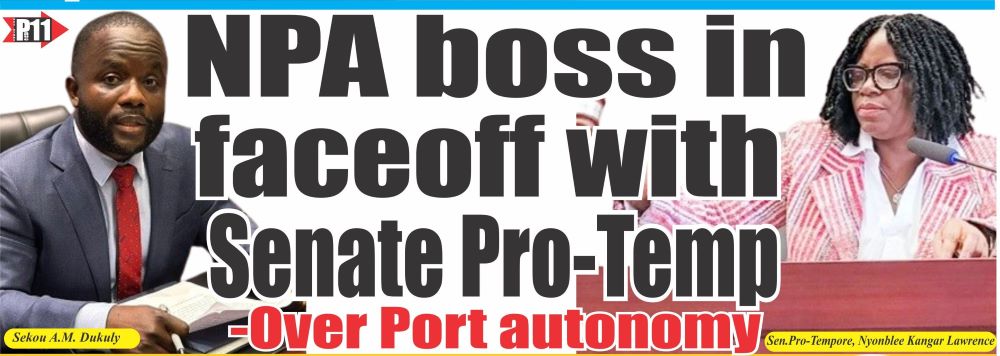The National Port Authority (NPA) of Liberia, under the leadership of Managing Director Sekou A.M. Dukuly, finds itself at odds with the Liberian Senate, particularly Senate President Pro-Tempore Nyonblee Kangar Lawrence, over a recently passed bill. This legislation aims to decentralize the management of Liberia’s ports, granting autonomy to smaller ports currently under the NPA’s jurisdiction. Dukuly vehemently opposes the bill, arguing that it is premature and driven by political motivations rather than sound policy. He believes that the move would undermine the NPA’s authority and jeopardize the efficient operation of the ports.
Dukuly’s primary concern revolves around the preparedness of the smaller ports to function independently. He contends that these ports lack the necessary infrastructure, resources, and adherence to international best practices to ensure sustainable operations. Granting them autonomy without addressing these fundamental deficiencies, he argues, would likely lead to operational inefficiencies and potential economic setbacks. He asserts that the Senate’s justification for the bill is flawed and lacks genuine consideration for the long-term viability of the Liberian port system.
While acknowledging that he has communicated his concerns to several senators, Dukuly expresses frustration at their apparent reluctance to challenge the Pro-Tempore’s position. He suggests that political expediency, rather than objective analysis, has influenced the Senate’s decision-making process. He views this as a troubling precedent, prioritizing political alignment over national interest. He remains steadfast in his belief that the timing of the bill is inappropriate, given the current state of the smaller ports.
Dukuly advocates for a more measured approach to port decentralization. He proposes that the focus should be on investing in the development and modernization of the smaller ports, equipping them with the necessary infrastructure and expertise to operate effectively as autonomous entities. Only then, he argues, should autonomy be considered. This phased approach would ensure a smooth transition and mitigate the risks associated with premature decentralization.
To counter the Senate’s initiative, Dukuly plans to engage the Executive branch and the Speaker of the House of Representatives, outlining his concerns and advocating for a reconsideration of the bill. He hopes to persuade President Weah to veto the legislation, emphasizing the potential negative impact on the nation’s port system. He remains optimistic that the President, who has consistently stressed the importance of best practices, will recognize the flaws in the Senate’s approach and prioritize the long-term interests of the country.
Dukuly’s efforts to overturn the Senate’s decision represent a crucial battle over the future of Liberia’s ports. He champions a vision of strategic development and modernization, while the Senate, in his view, prioritizes political maneuvering at the expense of effective port management. The outcome will significantly impact the efficiency and economic viability of Liberia’s maritime sector, shaping the country’s trade and development prospects. Dukuly’s challenge highlights the tension between political considerations and practical necessities in navigating complex policy decisions.














